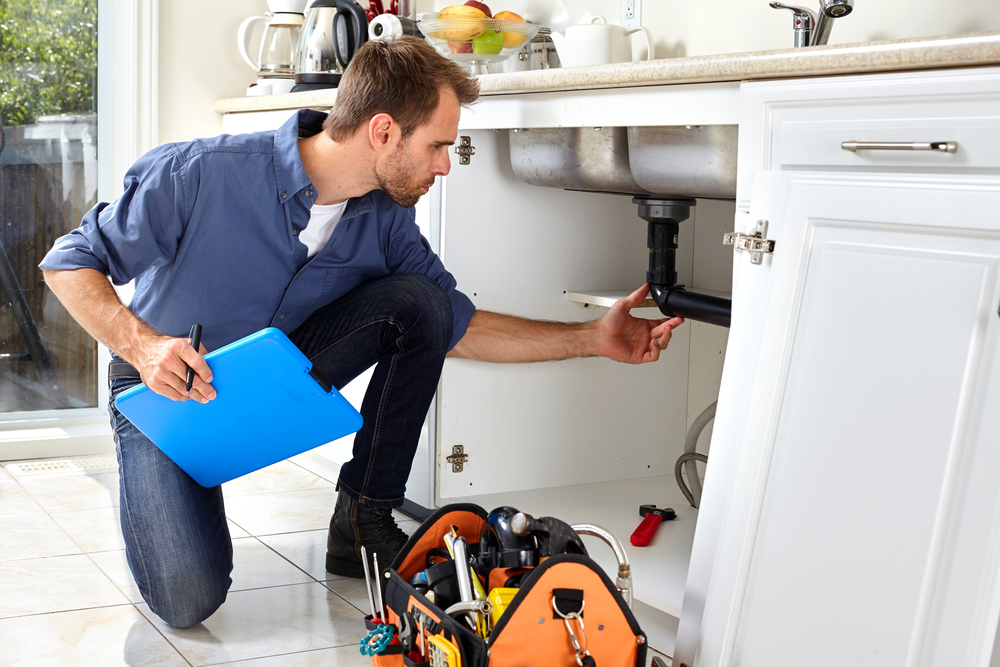Your home’s plumbing system keeps water flowing exactly where it should, providing you peace of mind each and every day (even if you’re not aware of it!). But when something goes wrong within that system, it could spell disaster in the form of major water damage and costly repairs. That’s why staying on top of any potential issues is so critical. Fortunately, you can easily avoid extensive problems by scheduling annual plumbing inspections.
When, exactly, should you schedule this yearly appointment? While you can technically book a plumbing inspection any time of year, many homeowners tend to experience the greatest success (and the least inconvenience) when they plan for this service in the spring or fall. Let’s explore why.
Why Spring and Fall Are Just Right for Plumbing Inspections
When it comes to scheduling your annual plumbing inspection, the sweet spots on the calendar are late spring and early fall because they are transition periods between winter and summer, which place the heaviest demands on your plumbing system. By scheduling an inspection during these milder shoulder seasons, you can prepare your home for the stresses ahead and address any damage that may have occurred during the previous season.
An Autumn Plumbing Inspection
Early fall is arguably the most strategic time to have your plumbing inspected. After all, the last thing you want to think about when the temperatures drop below freezing and the festivities of the holidays ramp up is a plumbing emergency. Because the impending cold weather can be brutal on your pipes, a fall plumbing inspection can give a professional the opportunity to identify vulnerabilities. This ultimately gives you peace of mind that it will be far less likely for a pipe to freeze and burst during the coldest days of the year.
During a fall inspection, a plumber will:
- Inspect Exterior Faucets and Spigots: They will ensure outdoor hose bibs are properly shut off and drained to prevent them from freezing and bursting, which can cause flooding inside your walls.
- Check for Pipe Insulation: The inspector will look at pipes in unheated areas like basements, crawl spaces, and attics to ensure they are adequately insulated.
- Examine the Water Heater: Your water heater works harder during the winter, and an inspection can help it be ready for this. It often involves checking for sediment buildup, leaks, or signs of corrosion.
- Sump Pump Evaluation: If you have a sump pump, the plumber will test it to ensure it’s ready for melting snow and heavy spring rains down the line.
Scheduling a plumbing inspection in the fall also has a practical advantage: it’s often a slower season for plumbers compared to the dead of winter when they are inundated with emergency calls for burst pipes. This translates into more convenient appointments and the focused attention of your technician.
A Spring Plumbing Inspection
Once the winter snow has melted and the trees begin to bud, it’s a great time to assess how your plumbing system weathered the cold. Winter can inflict damage to pipes and valves, and that damage can go undetected for an extended period of time. A spring inspection can prevent this from happening.
During a spring plumbing inspection, a plumber will:
- Look for Leaks: The repeated freezing and thawing cycle can put immense stress on pipes and joints, creating tiny cracks or leaks that may not be immediately obvious. A thorough inspection can uncover these plumbing leaks.
- Prepare for Summer Usage: Summer often means increased water usage, from filling up the swimming pool to watering the garden, running the sprinklers, and simply using the toilets and sinks more often. An inspection ensures your system can handle the increased demand without issue.
Other Crucial Times for a Plumbing Inspection
While an annual check-up is a fantastic rule of thumb, there are other specific instances when a comprehensive plumbing inspection is not just recommended but essential. These scenarios include:
- Before Buying or Selling a Home: For buyers, an inspection can reveal hidden problems that could cost thousands to fix later. For sellers, it provides transparency and can help the sale go more smoothly by addressing issues beforehand.
- Before and After a Major Remodel: Before you renovate a kitchen or bathroom, a plumber can assess your current system’s capacity to handle new fixtures. Afterward, an inspection confirms that all new plumbing was installed correctly and isn’t stressing the old system.
- When You Experience Persistent Issues: If you’re dealing with recurring problems like slow drains, rattling pipes, low water pressure, or a mysterious increase in your water bill, it’s time to call a professional. These are often symptoms of a larger underlying issue that an inspection can pinpoint.
Schedule Your Plumbing Inspection With Beantown Home Services Today
If it’s been some time since your home’s plumbing was inspected, or if you’re about to start the home-buying or selling process, don’t wait for a plumbing problem to wreak havoc. Instead, turn to our team for a comprehensive inspection. We’ll provide you with a detailed summary of our findings and clear, honest recommendations for moving forward, such as quick and detailed plumbing repairs or new installations. Contact us today to get started!

